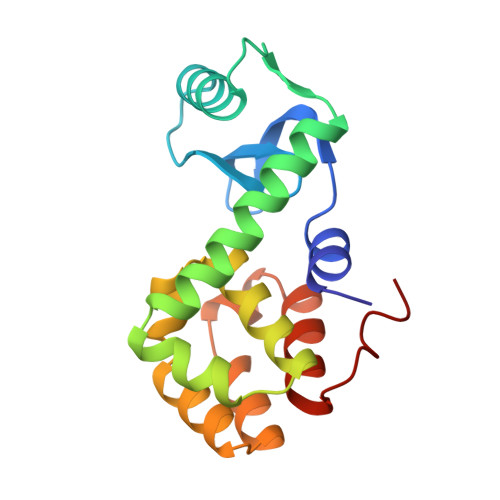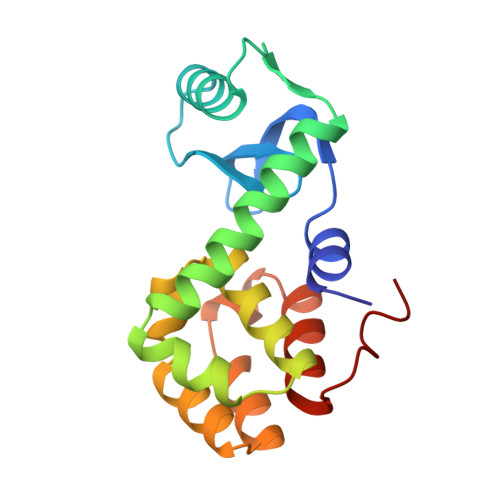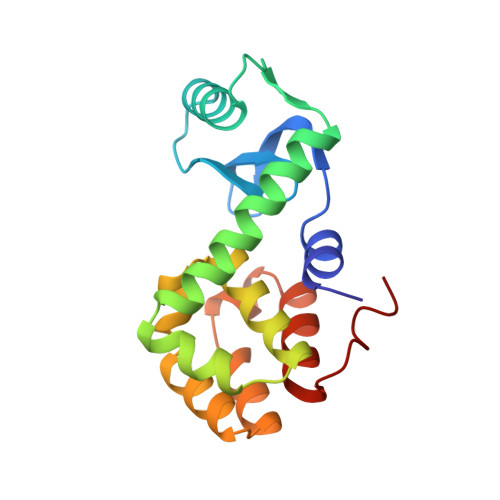Enhanced protein thermostability from site-directed mutations that decrease the entropy of unfolding.
Matthews, B.W., Nicholson, H., Becktel, W.J.(1987) Proc Natl Acad Sci U S A 84: 6663-6667
- PubMed: 3477797
- DOI: https://doi.org/10.1073/pnas.84.19.6663
- Primary Citation of Related Structures:
1L23, 1L24 - PubMed Abstract:
It is proposed that the stability of a protein can be increased by selected amino acid substitutions that decrease the configurational entropy of unfolding. Two such substitutions, one of the form Xaa----Pro and the other of the form Gly----Xaa, were constructed in bacteriophage T4 lysozyme at sites consistent with the known three-dimensional structure. Both substitutions stabilize the protein toward reversible and irreversible thermal denaturation at physiological pH. The substitutions have no effect on enzymatic activity. High-resolution crystallographic analysis of the proline-containing mutant protein (Ala-82----Pro) shows that its three-dimensional structure is essentially identical with the wild-type enzyme. The overall structure of the other mutant enzyme (Gly-77----Ala) is also very similar to wild-type lysozyme, although there are localized conformational adjustments in the vicinity of the altered amino acid. The combination of a number of such amino acid replacements, each of which is expected to contribute approximately 1 kcal/mol (1 cal = 4.184 J) to the free energy of folding, may provide a general strategy for substantial improvement in the stability of a protein.
Organizational Affiliation:
Institute of Molecular Biology, University of Oregon, Eugene 97403.


















